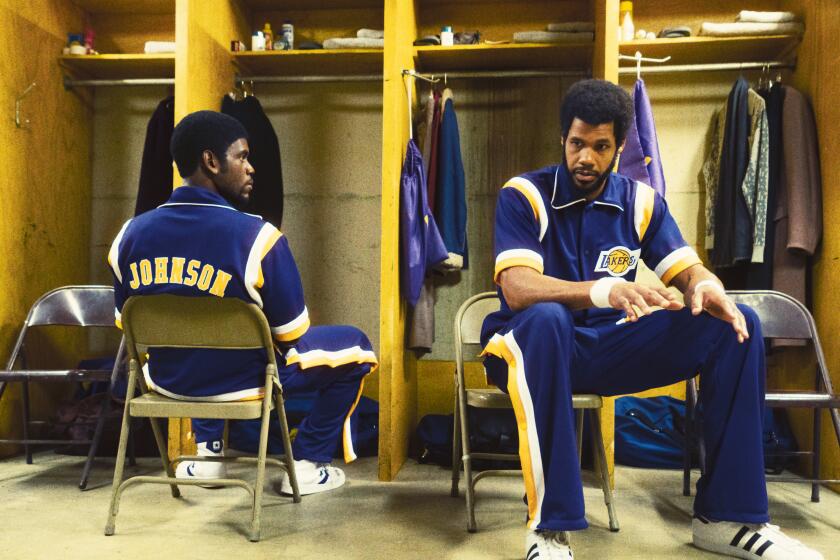The scandal that brought down Donald Sterling finally gets the Hollywood treatment
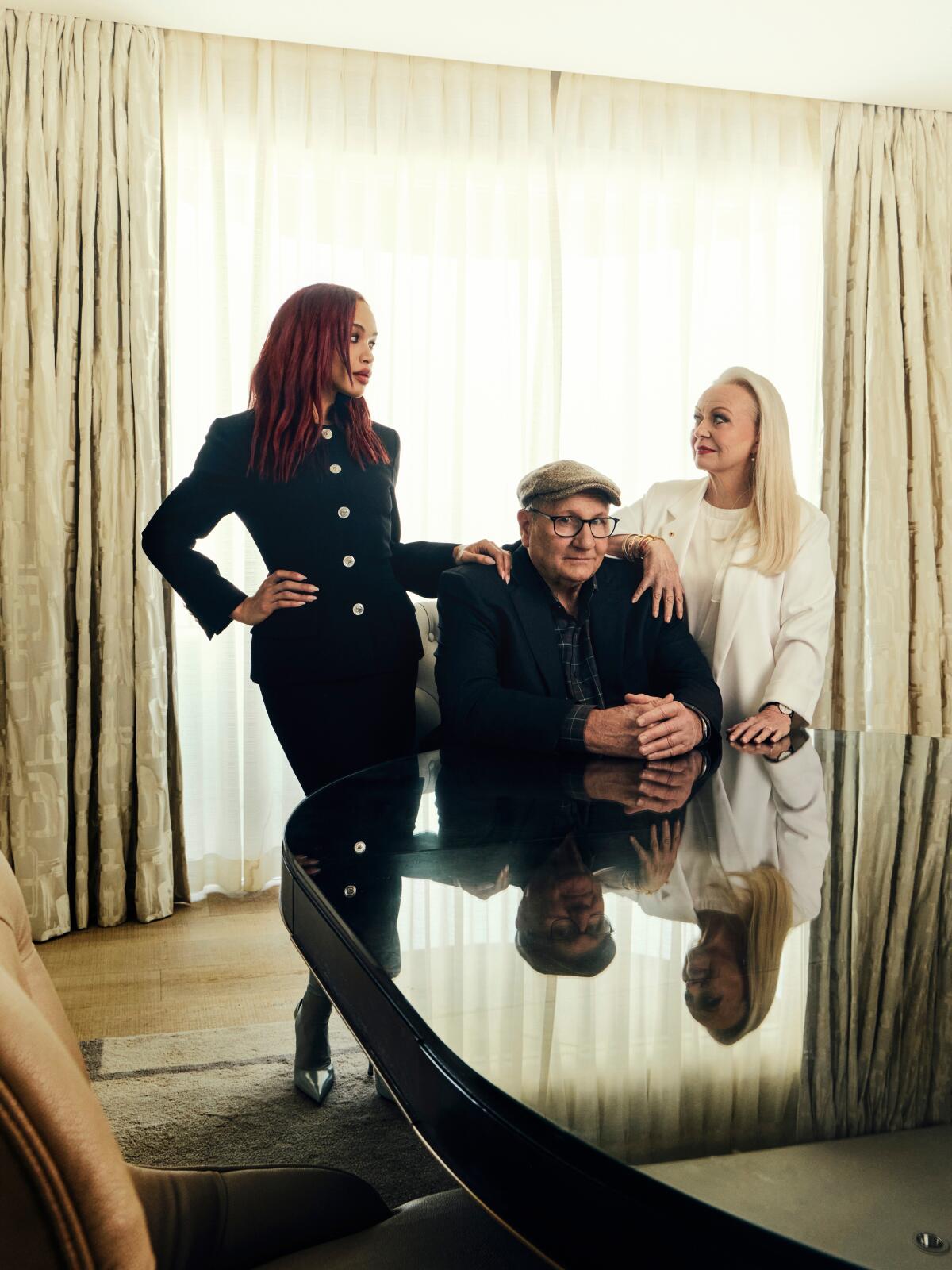
- Share via
Armed with a winning record, several top players and high hopes, the Los Angeles Clippers romped into the NBA playoffs for the fourth time in five seasons this year, but the end result was the same as ever: Plagued by injuries, the Clippers fell in the first round to the Dallas Mavericks, extending their long-standing reputation as a chronically cursed team.
As crushing as the early elimination was, however, it paled in comparison to the team’s 2014 playoff run, which collapsed in far more spectacular fashion.
That unforgettable downfall, at the hands of an now-infamous triangle, takes center court in FX’s “Clipped: The Scandalous Story of L.A.’s Other Basketball Team,” premiering June 4 on Hulu.
Usually the mention of triangles in the NBA is a reference to an inventive, geometric style of offense that emphasizes precision positioning and was key in the championship runs of the Chicago Bulls and the Los Angeles Lakers coached by Phil Jackson.
This summer, you’ll have to say goodbye to at least one series, but you’ll get to say hello to revivals of “Orphan Black” and “Yo Gabba Gabba!,” some mystery miniseries and music-centered docuseries.
But in “Clipped,” the three sides are occupied by then-Clippers owner Donald Sterling; his wife and business partner, Shelly; and V. Stiviano, a visor-wearing fame-seeker who was Sterling’s personal assistant — or, in her words, his “right hand arm man”/”silly rabbit”— and mistress.
The clash of these strong-willed personalities ultimately led to the April 2014 release of a recording of Donald Sterling telling Stiviano not to associate with Black people, including NBA superstar Magic Johnson. The racist rant scored Sterling a historic punishment: a lifetime ban from the NBA. Shelly Sterling subsequently maneuvered around her husband to sell the Clippers to former Microsoft CEO Steve Ballmer for $2 billion.
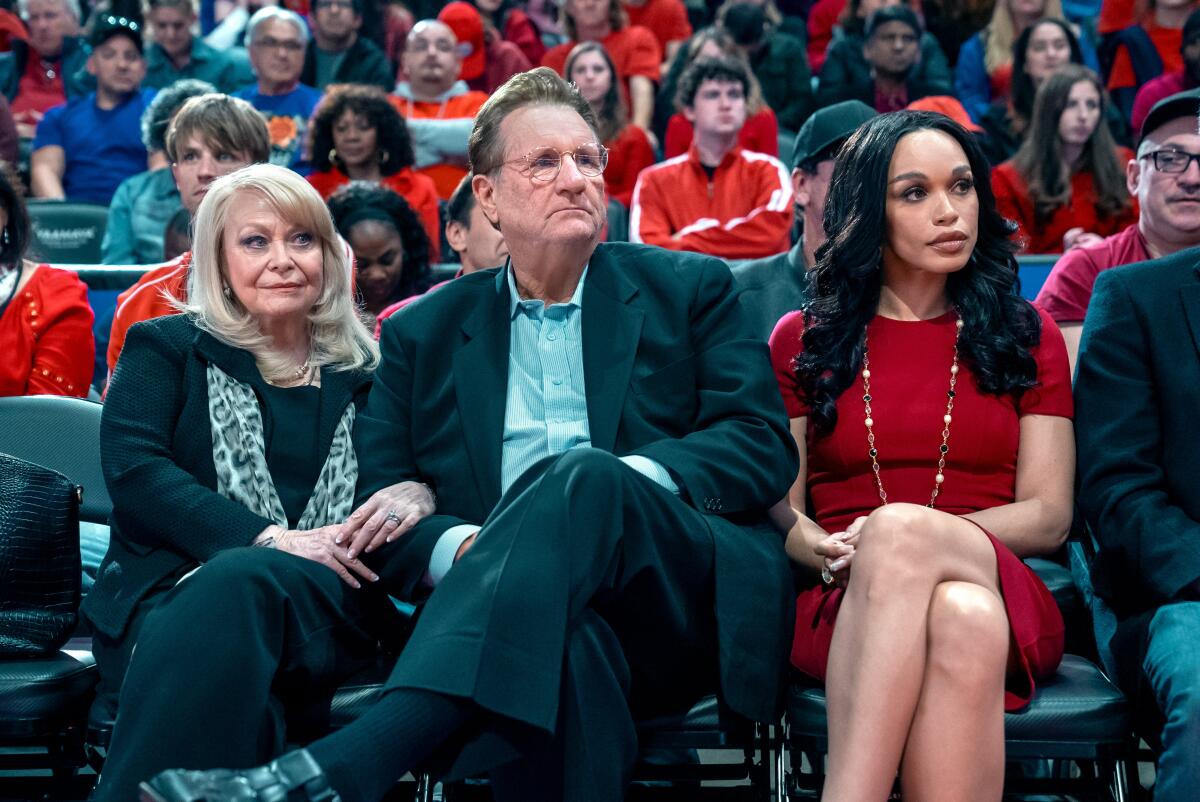
“Clipped” stars Ed O’Neill, in a role worlds away from his comedic turns in “Married ... With Children” and “Modern Family,” as the bullying billionaire. Jacki Weaver (“Animal Kingdom”) plays Shelly Sterling and Cleopatra Coleman (“Infinity Pool”) checks in as Stiviano. Also featured is Laurence Fishburne as “Doc” Rivers, the beleaguered Clippers coach at that time.
With its mix of on-court action, affluence, dark humor, racial reckoning and tragedy, “Clipped” may spark some comparisons to HBO’s short-lived “Winning Time: The Rise of the Lakers Dynasty,” about the Clippers’ hometown rivals. Like that series, “Clipped” contains depictions of team disharmony, particularly the oil-and-water combo of Chris Paul (J. Alphonse Nicholson) and Blake Griffin (Austin Scott).
But unlike “Winning Time,” which centered on then-Lakers owner Jerry Buss mixing athletics and entertainment to create an empire, the new project is more focused on the cultural and class issues shadowing Sterling’s fall from grace. Producers and stars of the series say “Clipped” is relevant far beyond sports.
“This story details the construct of race and sex and privilege and the way it makes people behave,” Fishburne told The Times. “I hope that people come away with the absurdity of that structure and societal ills we still have to contend with.”
Creator and showrunner Gina Welch said: “We want this show to be fun and entertaining, but also want to make sure we are measuring and keeping alive the tragedy of the story and all it represents.”
The series picks up in 2013 when Rivers, a former Clipper who has become a highly respected coach, arrives in Los Angeles with the goal of turning the losing team — an NBA punchline — into a contender. Rivers sees great potential in players such as Paul, Griffin, DeAndre Jordan and JJ Redick.
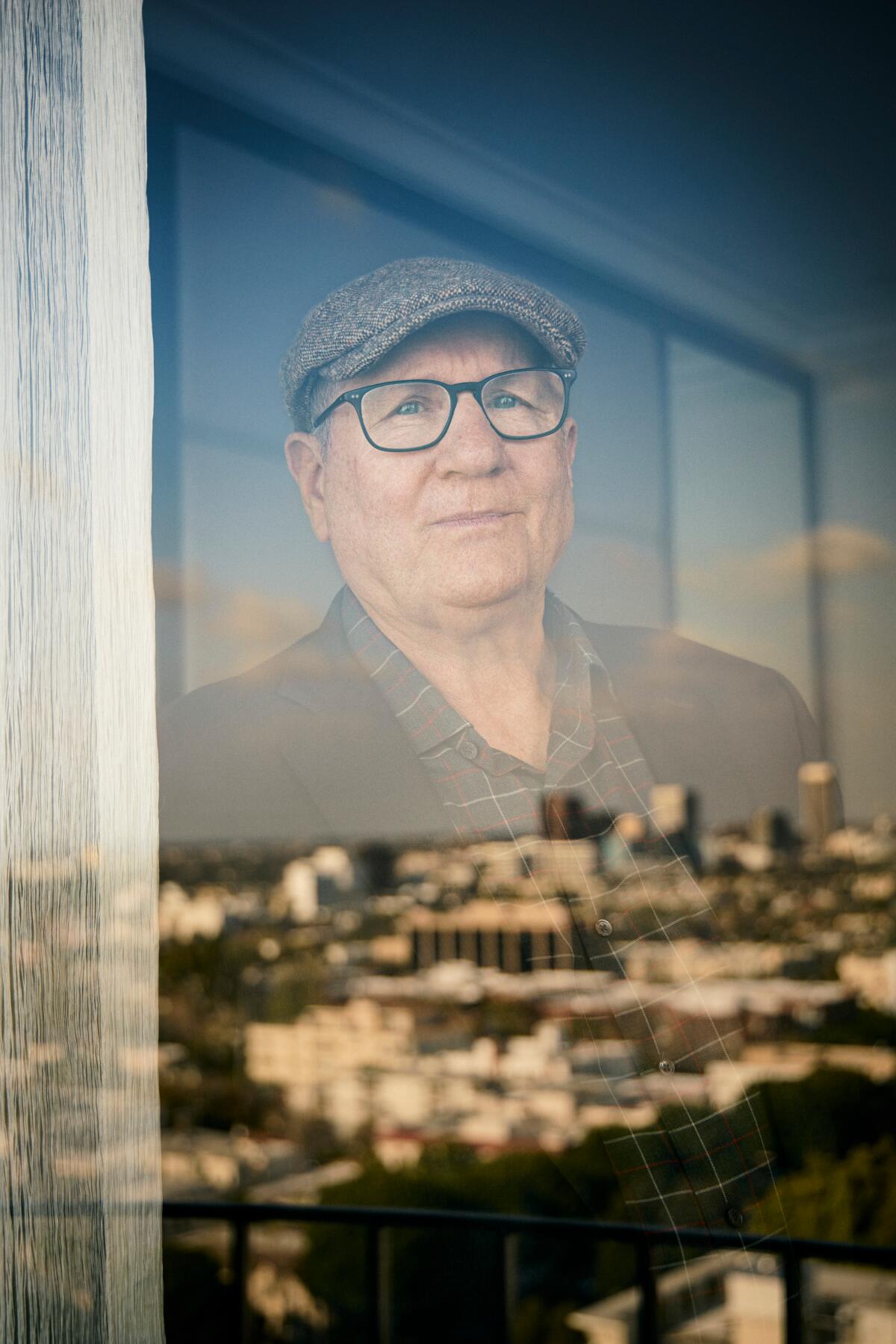
But as he transforms them into a winning unit with the nickname “Lob City,” Rivers and his players grow increasingly uncomfortable with Sterling’s eccentricities and post-game locker room visits. Complicating matters is the publicity about Sterling’s affair with the striking Stiviano and his voluminous gifts to her, including money, cars and a $1.8-million duplex near the Beverly Center. Angered by the relationship, Shelly Sterling files an embezzlement lawsuit against Stiviano, calling her a “gold digger.”
The scandal erupted during a first-round playoff series between the Clippers and the Golden State Warriors when TMZ released a recording of a private conversation between Sterling and Stiviano in which the Clippers owner expressed his displeasure at Stiviano posting a picture of her and Johnson on Instagram.
“It bothers me a lot that you want to broadcast that you’re associating with Black people,” said Sterling. “I’m just saying, in your ... Instagrams, you don’t have to have yourself with, walking with Black people. Don’t put [Johnson] on an Instagram for the world to have to see so they have to call me. And don’t bring him to my games.”
At another point, Stiviano challenged Sterling about his bigotry. Calling her “a mental case,” he added: “If my girl can’t do what I want, I don’t want the girl. I’ll find a girl that will do what I want. Believe me.”
After Stiviano pointed out his association with Black people, Sterling replied, “I’m not you and you’re not me. You’re supposed to be a delicate white or a delicate Latina girl.”
Said Stiviano: “I’m a mixed girl. And you’re in love with me. And I’m Black and Mexican, whether you like it or not.”
The fallout was swift and fiery. The NAACP withdrew its plans to honor Sterling with a lifetime achievement award. Major sponsors withdrew, putting black drapes over their arena banners. Johnson and other top athletes including Michael Jordan and LeBron James condemned Sterling. Clippers players debated whether to stage a boycott. And Adam Silver, newly installed as NBA commissioner, faced a dilemma over how to punish Sterling and quell the outrage.
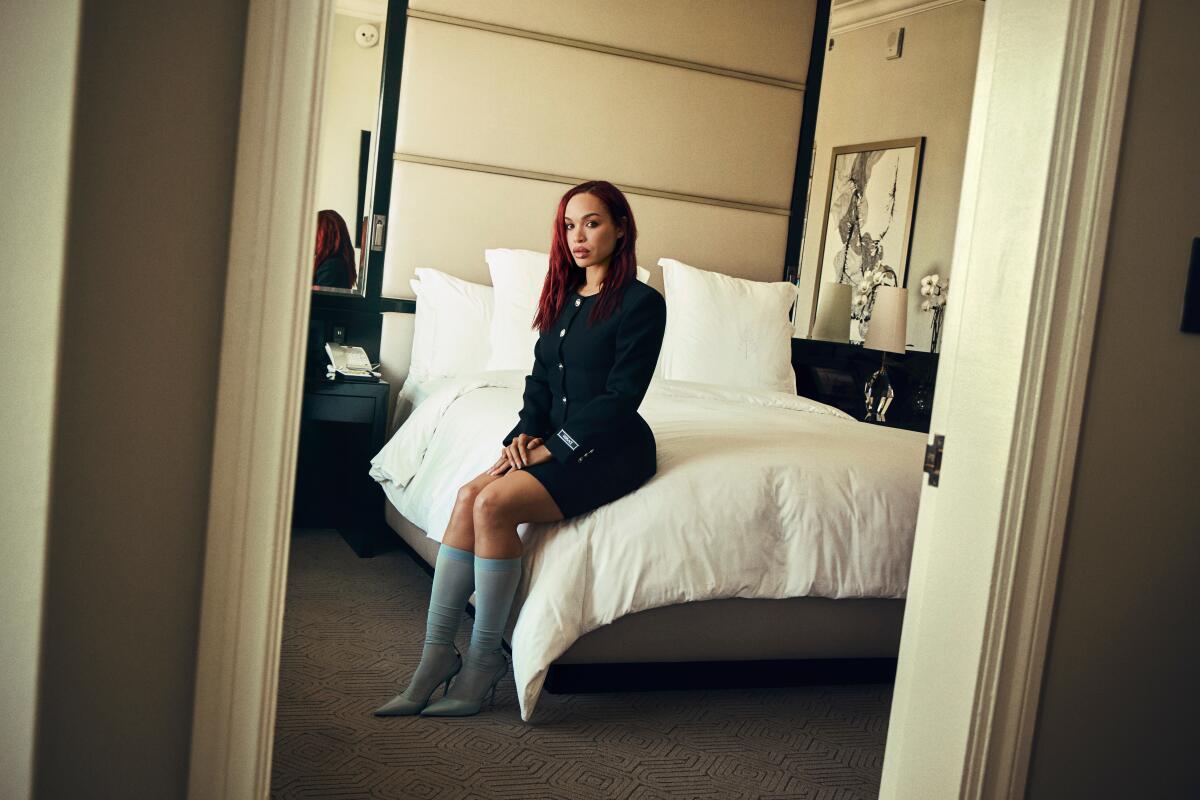
“I don’t know of many stories I’ve covered that had so many twists and turns as this one,” said executive producer Ramona Shelburne, whose podcast “The Sterling Affairs,” for ESPN’s “30 for 30,” serves as the basis for the series. “The more I covered it, the more I realized this incredible love triangle. It was like living in a movie.”
Shelburne probed Sterling’s rise from humble beginnings to the largest residential landlord in Los Angeles. Along the way, he also secured a notorious reputation — and constant legal hassles — for his refusal to rent to Black people and other marginalized groups. In 2009, Sterling agreed to pay $2.73 million to the Justice Department to settle a lawsuit alleging that he refused to rent apartments in his Koreatown buildings to Latino and Black tenants and to families with children.
As her reporting deepened, Shelburne zoomed in on a central theme: the powerful lure of the lifestyles of the rich and famous.
“There’s this moment when you have to determine how far you’re willing to go to have that life, to have the sun shine on you,” she said. “Each of these characters make their choice on how far they are willing to go, and what pieces of their soul they are willing to sacrifice to have that life.”
Welch said the subject matter was naturally suited to dramatic exploration.
“There are elements of absurdity and weirdness that I knew would be fun to write,” she said. “The central characters are complicated and fascinating people, their nose pressed up against the glass of wealth and power and fame. There is a real loneliness to them.”
Everything you need to know about the true story of the Showtime Lakers, all in one place.
Although aware of the scandal when it first broke, O’Neill was not keen about signing onto the project when Welch first approached him.
“I was all ready to say, ‘This is not for me,’ ” said O’Neill, who is not a basketball fan. “I felt it would be too difficult for me to do convincingly. I don’t look anything like him. I’m bigger than he was. I felt there were actors who could do a better job.”
But he began to have second thoughts when reflecting on his career trajectory, particularly the lighter fare that had made him a prime-time star.
“For a long time, I’ve been like a second-tier guy, and I’ve always thought, ‘You know, I can do a lot better than this,’ ” O’Neill said. “But sometimes you don’t get the opportunities. When you’re in the business, there’s a tendency to put you in a slot. And I understand that. But it never affected me that way. I was looking for something that would be fun and challenging to do.
“I’ve been very lucky. I don’t complain. I’ve had a great career, and some great opportunities. But not stuff like this! It’s almost Shakespearean, like Macbeth and Lady Macbeth. Donald and Shelly were a team and protected what they had.”
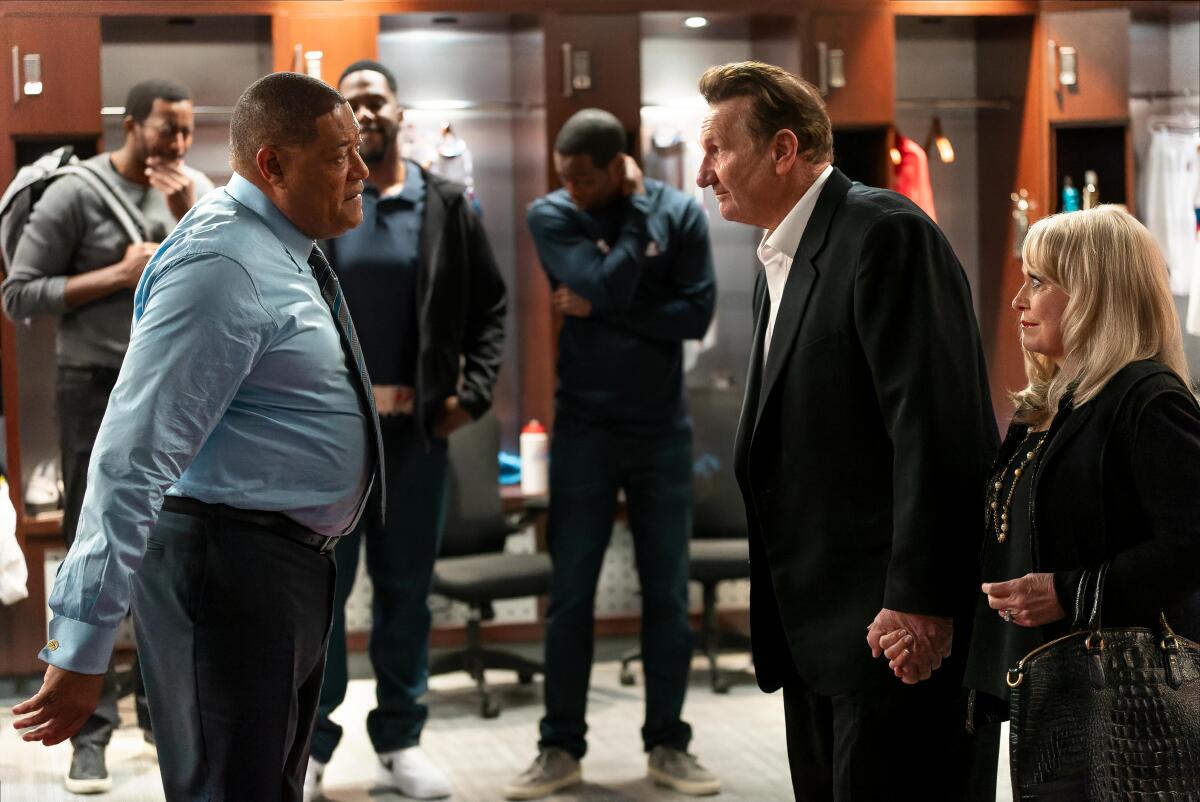
Part of the appeal for O’Neill was his understanding of Sterling’s approach to life.
“I wanted to connect with Donald’s humanity — not to make him a hero but to show people it’s not always easy to judge someone,” he said. “He was such a personality that you never knew what you were going to get one minute to the next. He was inadvertently funny, and he could be mean as a snake. You could make a case that he liked the players, that he enjoyed them tremendously, but he had these flaws.”
Despite their physical differences, O’Neill easily slips into the role, projecting not only Sterling’s quirks and occasional charm but also his bullying temper.
Said the actor: “He didn’t think of himself as a horrible guy. He ultimately did admit, ‘I should not have said those things.’ ”
Welch called O’Neill’s performance a revelation.
“I think he was excited for the opportunity to show everybody how good he is,” said Welch. “He was completely alive to every scene he played — he was funny when it was time to be funny, and terrifying when it was time to be terrifying. He understood that what he was doing is going to surprise people.
“I also knew I needed an actor who was not protective of his own image. It’s hard to find an actor to play someone really ugly, and Ed was totally down to go there.”
Weaver said she studied footage and interviews in her research for playing Shelly Sterling.
“I admired her,” she said. “She was a quiet lady, soft-spoken, but she beat them all at their own game. She was half-owner of the team, a great example of being the brains behind the brawn. I also think there was really true love between them.”
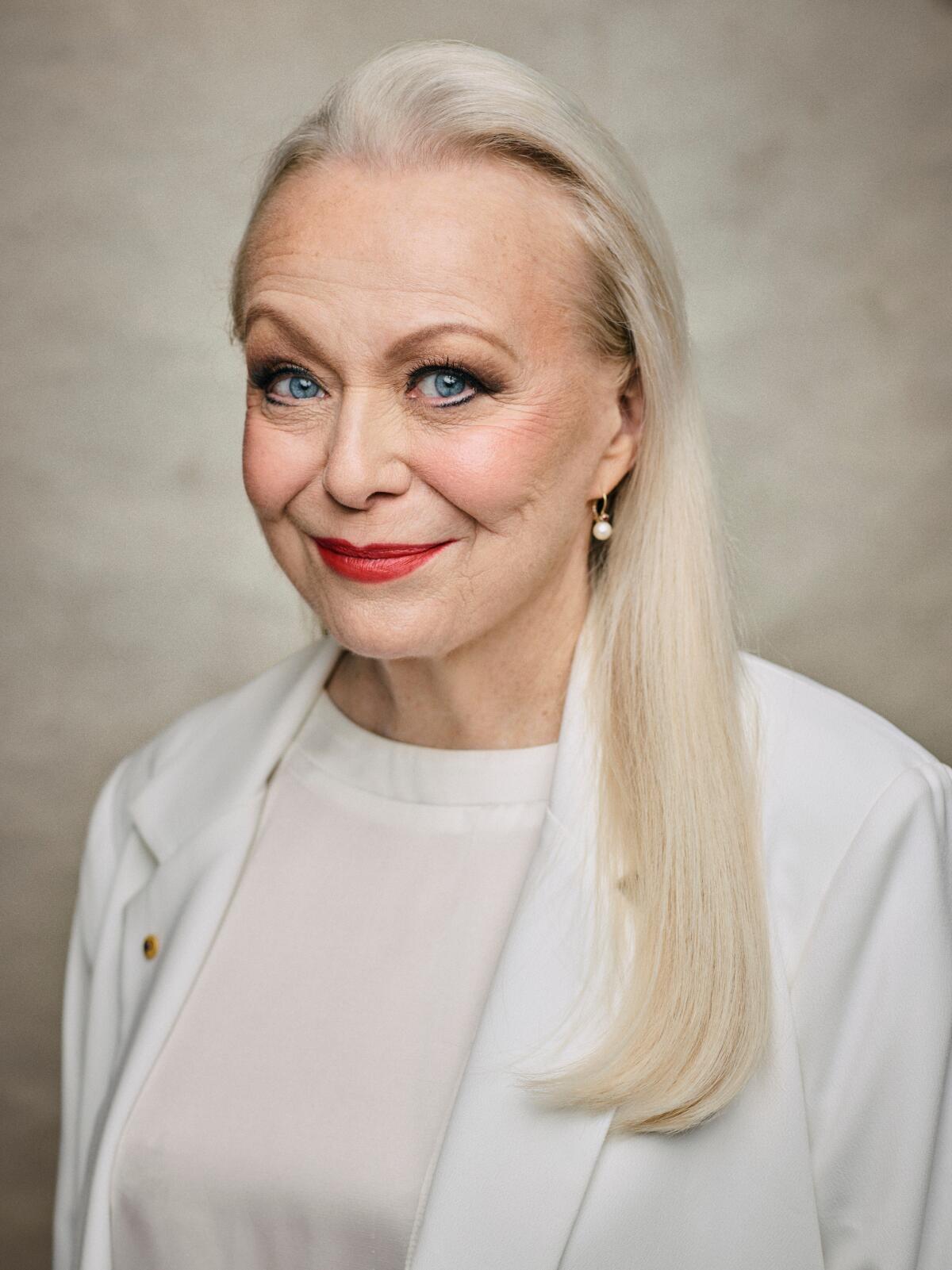
Much of the series is told from the perspective of Stiviano. In addition to her edgy personality and desire for celebrity, “Clipped” also shows her softer side, including her care for two young boys whom she adopted, a detail that was not widely reported at the time.
For the record:
9:21 a.m. May 22, 2024An earlier version of this article quoted Cleopatra Coleman as saying of V. Stiviano: “She insists on her own values despite her surroundings suggesting otherwise. ... She also had a perceptive lack of shame, which was fascinating.” Coleman actually said: “She insists on her own value despite her surroundings suggesting otherwise. ... She also had a perceptible lack of shame, which was fascinating.”
“She insists on her own value despite her surroundings suggesting otherwise,” Coleman said of Stiviano. “I saw her as an outsider and survivor, an outlier. She also had a perceptible lack of shame, which was fascinating. Sometimes she breaks rules because she doesn’t really know what they are.”
She added, “I really came to care for her. The way she played with fame showed a lot of intelligence and humor, which I think was lost at the time.”
Confident in her mission to bring authenticity and meaning to the Clippers story, Welch said she is hopeful sports and nonsports fans will connect with “Clipped.”
“Whether you are an NBA fan and really followed this story, or you don’t give a f— about basketball, I want people to sit down and get involved with the characters and love the show on its own.”
More to Read
The complete guide to home viewing
Get Screen Gab for everything about the TV shows and streaming movies everyone’s talking about.
You may occasionally receive promotional content from the Los Angeles Times.

